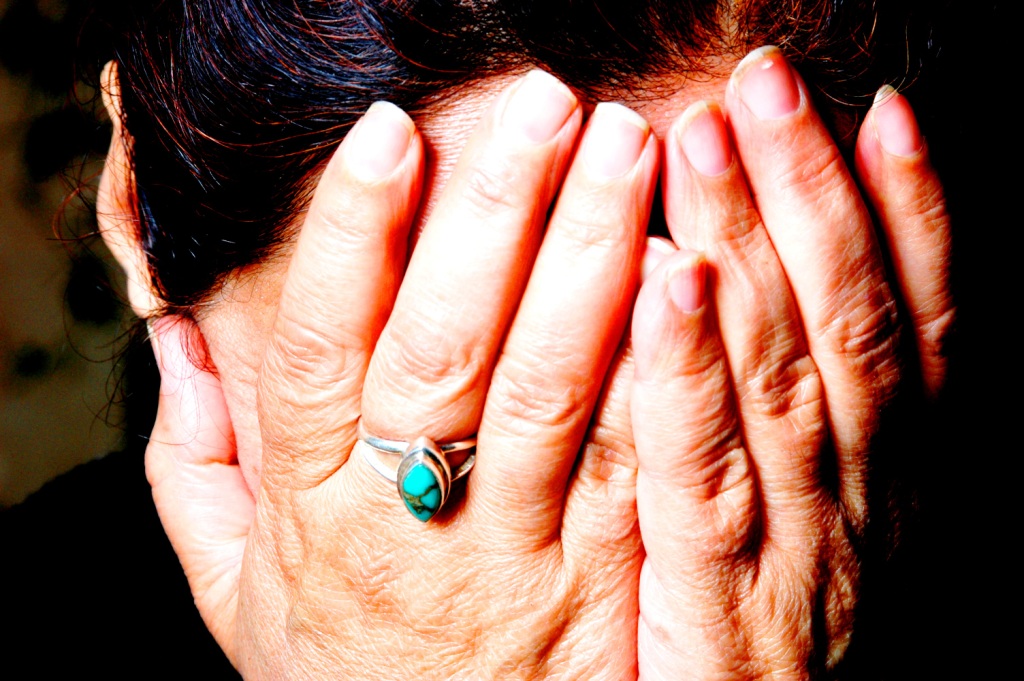When I had my comic memoir published by an award-winning independent press in 2008, I thought it would be the pinnacle of my professional writing career. But after my publisher went bankrupt one year later, taking with him most of my dreams, that celebratory moment turned into one of despair.
Standing in our basement, looking at the five big crates of unsold books we were left with after the experience, my husband wondered aloud what we were going to do with them. I said to him: “We can always make a bonfire and toast marshmallows.” Suddenly, the tension seemed to lift.
I firmly believe my ability to find the humor in upsetting circumstances like this one has helped me to rebound from innumerable setbacks. Humor is, in fact, a free resource that has greater rejuvenative powers than anything we might be tempted to buy to cheer us up. For depressed people in particular, laughter is at once a defense against a seemingly indefensible world and a safety valve.
The therapeutic value of laughter has been recognized for centuries, but it was first popularized in the United States in the 1970s, when author Norman Cousins recounted his experience overcoming a painful case of arthritis by watching funny television programs like “Candid Camera” and Marx Brothers movies. In his book about the experience, “Anatomy of an Illness,” Cousins reported that ten minutes of laughter provided him with two hours of anesthetic-free pain relief.
Today, humor therapy is a recognized discipline in the field of psychology, and many practitioners offer advice on how best to incorporate laughter into our lives when we are going through difficult times. But we don’t even have to turn to professionals for guidance on this matter—we are surrounded by free humor everyday. Not only in the typical entertainment fare, but in small moments—walking with a friend who makes us laugh, observing a child’s innocence, or a pet’s curiosity. Humor is everywhere. We just have to train ourselves to be open to it.
I once interviewed a clinical psychologist and humor therapist for an article I was writing on counseling couples going through home renovation projects—a very stressful circumstance indeed. He offered tips on dealing with the experience, which I think can be applied to many others stressors we face in life.
One of his main suggestions was to work with a partner or a friend as a stress buster—someone with whom to share everything absurd or silly that happened during the course of a day’s frazzling events. He also suggested keeping a written log of these moments and sharing them with their stress buddies at the end of each week. The positive affect on overall outlook, he said, is tremendous.
Another tip he offered the couples he counseled was to always keep a humorous moment from their lives in their memory to access when they were under a great deal of pressure. Just the simple act of remembering something that made them laugh or smile did wonders to relieve stress in the present moment, he said.
I have since followed this psychologist’s advice, and it has helped. Now, my stress-busting partner is either my husband or a close childhood friend. And whenever I am in a trying situation, I remember the time I was driving with my mother on a highway lost and she screamed: “Can’t you ask someone for directions?” (I remind you, we were on a highway!).
I believe laughter is a critical component of a life well-lived and is the main reason why friends and couples form and stay in relationships. It can do wonders for everyone, in any circumstance. Even for those of us who have seen their hopes of being a best-selling author dashed.
Photo by Matteo Staltari






In my opinion, you are one of the best authors ever because your writing is exquisite AND helps people immeasurably EVERY DAY.
Thanks, Rebecca! You made my day. :)
HIya Wendy,
Thanks for this great article. The only rule I have in life to laugh out loud at least once a day! It makes such a different in your life and in the life of the people around you. I have learned to humour life and not take things to serious. Therefore, I do laugh a lot and about almost everything. I have noticed that people look strange at me sometimes and dont understand but there I am laughing anyway on my own :D
Laughing is lifting the soul and gives you a free feeling. So thank you for sharing this.
BTW I would be interested in your comic. Have you uploaded it online?
Wencke
Hi Wencke,
I’m still working on my collection and will notify you when its available. Just leave your email address at my web site.
Thanks for reading!
Wendy
Hi Wendy,
This is my first time here at The Change Blog, but I must say, I’m loving what I’ve been reading thus far. This post in particular, pretty much sums up what has helped me through some of my roughest times. Laughter is indeed a great medicine, it cures those inner ailments that we – or any doctor, in my opinion – could ever begin to touch or prescribe medication too. Now, that’s not to say I believe that doctors and medicine aren’t beneficial for us in this day and time, but I agree that there’s some things we face in life that only a good ole’ laugh can melt away. Thanks for sharing this wonderful message and your inspiring experience with us. I will certainly be back for more change! ;) Cheers!
An ancient master said we can skip all of the hard work on the road to enlightenment: just get out of bed each morning, throw open the window, stick your head out, and laugh. Anyone who can do that is enlightened.
So, we like to practice laughing at will at our house.
Hi Wendy,
Laughter can cure all “ills”…always enjoy a healthy dose. Thankyou for sharing your story.
be good to yourself
David
What a great post Wendy. A perfect approach and some solid ideas about how to get there. I also find that injecting humour is very helpful. In my work with clients I keep things as light as possible particularly when dealing with difficult issues. Thanks.
that’s amazing Wendy
keep it up: )